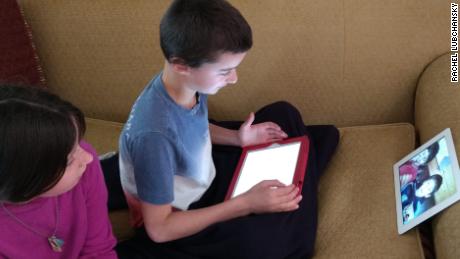Schools should also plan for intermittent closures in the future if the virus begins to rebound, the American Academy of Pediatrics said in new guidance. "Until the broad availability of a vaccine and/or treatment for Covid-19 exists, there is a risk for future waves of disease impacting communities across the country; it is important that schools plan for the possibility of additional periods of school closures and prepare strategically for distance learning or other educational options," it said.So far, 46 states and Washington, D.C., have announced school closures through the end of the 2019-2020 academic year.While it will be hard for schools to plan for reopening, it's clear that distance learning is less than optimal, the group said.
Unpredictable factors
A lot depends on factors that cannot yet be predicted: how the virus is spreading both nationally and in local communities, how much testing is available and whether state and local health departments are able to control spread via testing and contact tracing, the group said.Schools will also have to be ready to clean and sanitize all areas; screen, monitor and test students and staff; and limit student interactions. That may include having students stay in one room, with teachers moving from class to class. "Consider spacing/social distancing, staggered scheduling, transportation/busing, eating areas and waiting areas (e.g., pickup)," the group which represents and advises pediatricians, said. "Ability to acquire necessary supplies to achieve the above strategies is critical," the guidelines added.The organization indicated it supports efforts to get back to school if it can be done safely. "While some school districts have implemented distance learning, this is not generally believed to replicate the in-person learning experience," the group said in its guidance."Such districts may also experience a widened divide in academic progress, with certain children able to access distance learning and continue to grow academically, while others might experience difficulty accessing or engaging with virtual instruction."
"Ability to acquire necessary supplies to achieve the above strategies is critical," the guidelines added.The organization indicated it supports efforts to get back to school if it can be done safely. "While some school districts have implemented distance learning, this is not generally believed to replicate the in-person learning experience," the group said in its guidance."Such districts may also experience a widened divide in academic progress, with certain children able to access distance learning and continue to grow academically, while others might experience difficulty accessing or engaging with virtual instruction."
More than learning
Plus, many kids get their meals at school, and school is an important resource for children with disabilities, the group said.As for daycare, the AAP recommended that caregivers Read More – Source
[contf] [contfnew] 
cnn
[contfnewc] [contfnewc]





